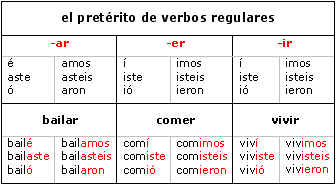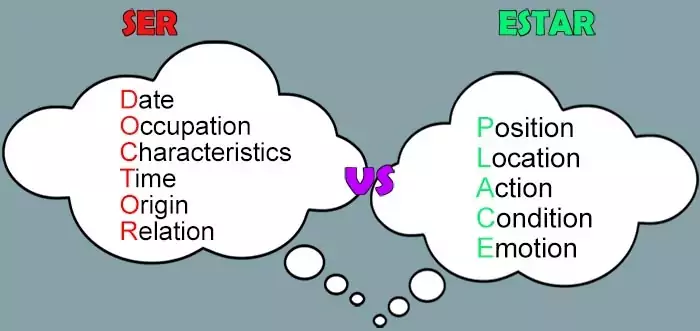
Basic Preterite Conjugation Spanish

Remember that there are also irregular verbs in the preterite tense, so it's important to study them separately.
STUDY IRREGULAR VERBS:
https://knowt.com/flashcards/07ccefcf-4158-4bb7-bfa4-419b9d4d4fdf anything red resembles an accent mark
SABER Y CONOCER:
Saber and conocer are both Spanish verbs that mean "to know," but they are used in different contexts.
"Saber" is used to express knowledge or information about facts, skills, or how to do something. For example, "Sé hablar español" means "I know how to speak Spanish."
"Conocer" is used to express familiarity or acquaintance with people, places, or things. For example, "Conozco a María" means "I know María."
In summary, use "saber" when talking about knowledge or skills, and use "conocer" when talking about familiarity or acquaintance with someone or something.


note: Saber is an irregular verb, so you have to memorize the preterite conjugation.
ESTAR Y SER:

Basic Preterite Conjugation Spanish

Remember that there are also irregular verbs in the preterite tense, so it's important to study them separately.
STUDY IRREGULAR VERBS:
https://knowt.com/flashcards/07ccefcf-4158-4bb7-bfa4-419b9d4d4fdf anything red resembles an accent mark
SABER Y CONOCER:
Saber and conocer are both Spanish verbs that mean "to know," but they are used in different contexts.
"Saber" is used to express knowledge or information about facts, skills, or how to do something. For example, "Sé hablar español" means "I know how to speak Spanish."
"Conocer" is used to express familiarity or acquaintance with people, places, or things. For example, "Conozco a María" means "I know María."
In summary, use "saber" when talking about knowledge or skills, and use "conocer" when talking about familiarity or acquaintance with someone or something.


note: Saber is an irregular verb, so you have to memorize the preterite conjugation.
ESTAR Y SER:

 Knowt
Knowt